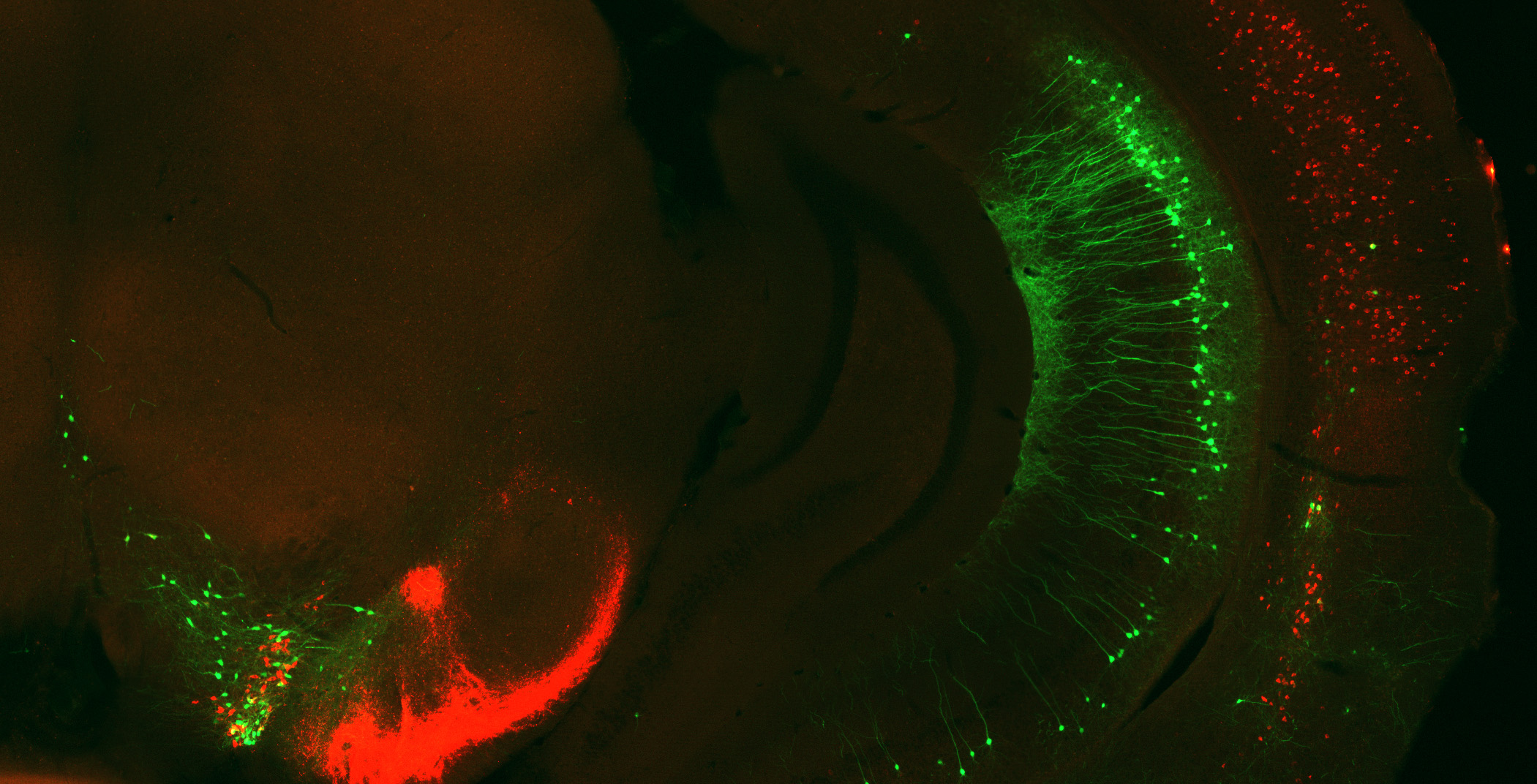Research in the Fuccillo lab
Abnormalities in behavioral control are a core feature of many neuropsychiatric disorders, including schizophrenia, autism, obsessive-compulsive disorder (OCD) and addiction. These abnormalities manifest across a spectrum, from deficits in simple motor output (tics, repetitive movements, fixed motor transitions) to alterations in executive control (dysfunction in cognitive tasks that guide planning and decision-making in response to motivation, environmental cues and previous experience).
We aim to understand how neuronal circuits contribute to behavioral control and how inherited mutations compromise brain function leading to abnormal behavioral output. Leveraging the experimental potential of mouse genetics, my lab uses three parallel approaches:
- Exploring the molecular and anatomical heterogeneity of neural circuits that regulate behavior
- Observing and manipulating distinct circuit components that shape behavioral output
- Employing genetic disease modeling in mice to understand how physiological dysfunction in specific brain circuits translates into abnormalities of behavioral regulation

Two-color retrograde labeling from distinct striatal target regions showing divergent projections from ventral hippocampus (green) and overlying cortex (red), and intermingled projection populations within the ventral tegmental area.

